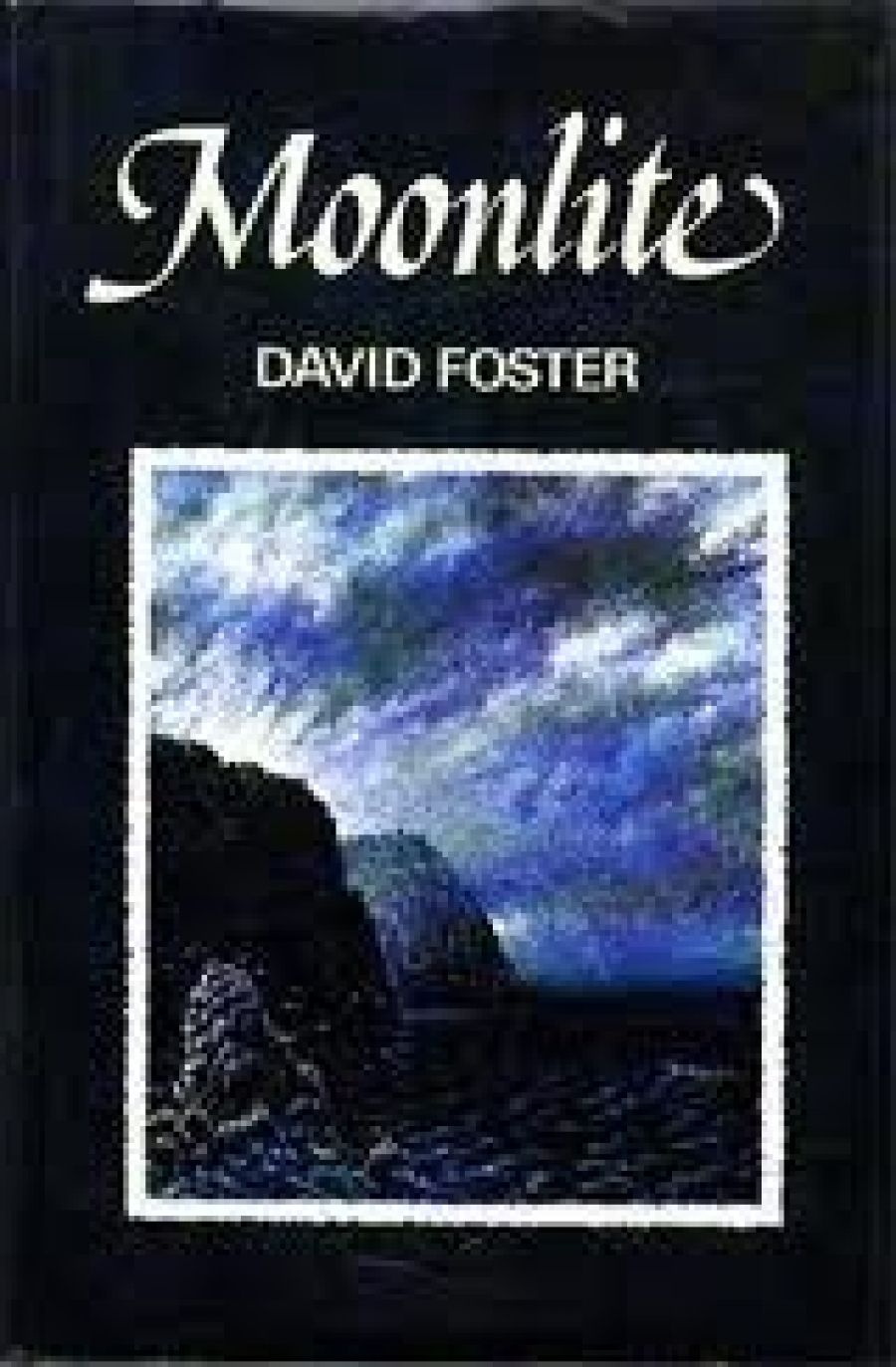
- Free Article: No
- Contents Category: Fiction
- Review Article: Yes
- Online Only: No
- Custom Highlight Text:
I’ve always had a terror of one day having to explain a joke. And now it’s happened. Moonlite is one of the jokiest books since Such Is Life which in its turn reminds us of the even jokier Tristram Shandy and behind that no less than Rabelais himself. The best way to talk about Moonlite, then, is perhaps to say that it is bouncing, bewildering, wilful and – very occasionally – boring, just as these books are.
- Book 1 Title: Moonlite
- Book 1 Biblio: Macmillan, $9.95 pb, 223 pp
But Foster also shares Furphy’s love of talk and the panicky awareness that seems to underlie it, that in a world where nothing much makes sense it is important to go on talking, at least making sense of oneself. So, here, like Furphy, the narrator talks about anything and everything – physics, statistics, conversion, and fall from grace (though it is true the ‘religions’ involved are teetotalism and drinking), the virtues of cocoa, imagination versus reality, the spirit host, how to make whisky, and so on and so forth. What makes all this the more delightful is its throwaway quality: what is being said may or may not be true, may or may not matter – that’s for the reader to decide.
Style, after all, is a mask or, rather, the way the writer draws attention to the mask he is wearing, and once granted the right to such disguises anything may happen. And here it does – Finbar sees the spirit host, survives duels, makes his way at Newbridge; his ship turns turtle, he is exorcised by a drunken priest, befriended by a cocoa-drinking Aborigine and so on. If, as someone has said, a novel is a kind of death, transforming the one-darn-thingafter-another of life into a tidy pattern and turning memory into something useful. Foster shows us that there can be life after this death, more abundant life, in fact. Consider, for example, the zest evident in the game being played with past and present, theory, facts and words in this exchange between Finbar and his friend and patron at Newbridge – years before quantum theory:
‘Finbar, what madness is this? Particles are not waves, nor waves particles!’
‘Christ, man, they’re only words, let’s not be afeared o’them! Now then: I need mair money.’
‘More money! But I gave you a pound last week!’
‘The Tories are back in, Maccabee: the prices keep going up.’
If you enjoy this, this is your book.
However, it is not a book for prudes. Foster’s taste for scatology does not go as far as Rabelais’ or even Sterne’s but he does take a wild delight in the absurdities of physical necessity. Nor is it a book for unthinking patriots or politicians since if the book has a moral it may be that Australia is the natural habitat of Finbar, child of night, convert to drunkenness, desolation, and success. ‘An area so remote and desolate, as to make an excellent rubbish tip’, New West Hebrides bears a remarkable resemblance to our own dear country, not only in its physical but also in its psychic landscape.
‘Friends, I ask you to observe my composure …I am a man utterly without human emotion of any kind! Nothing.’ Nothing! Can stand between me and the will of the people I represent. Not common sense – not love nor hate – not fear for the future, not guilt for the past – nothing. I have no soul of my own, no heart to intrude upon my judgements.
Finbar’s electoral speech suggests that knowing what the Zeitgeist is and where it is going is one of Foster’s gifts as well. Reading Moonlite, however, is much more fun than reading history or political commentary. As Augustine wrote over a thousand years ago, we learn the truth more willingly through tropes and figures, and with much more delight.


Comments powered by CComment